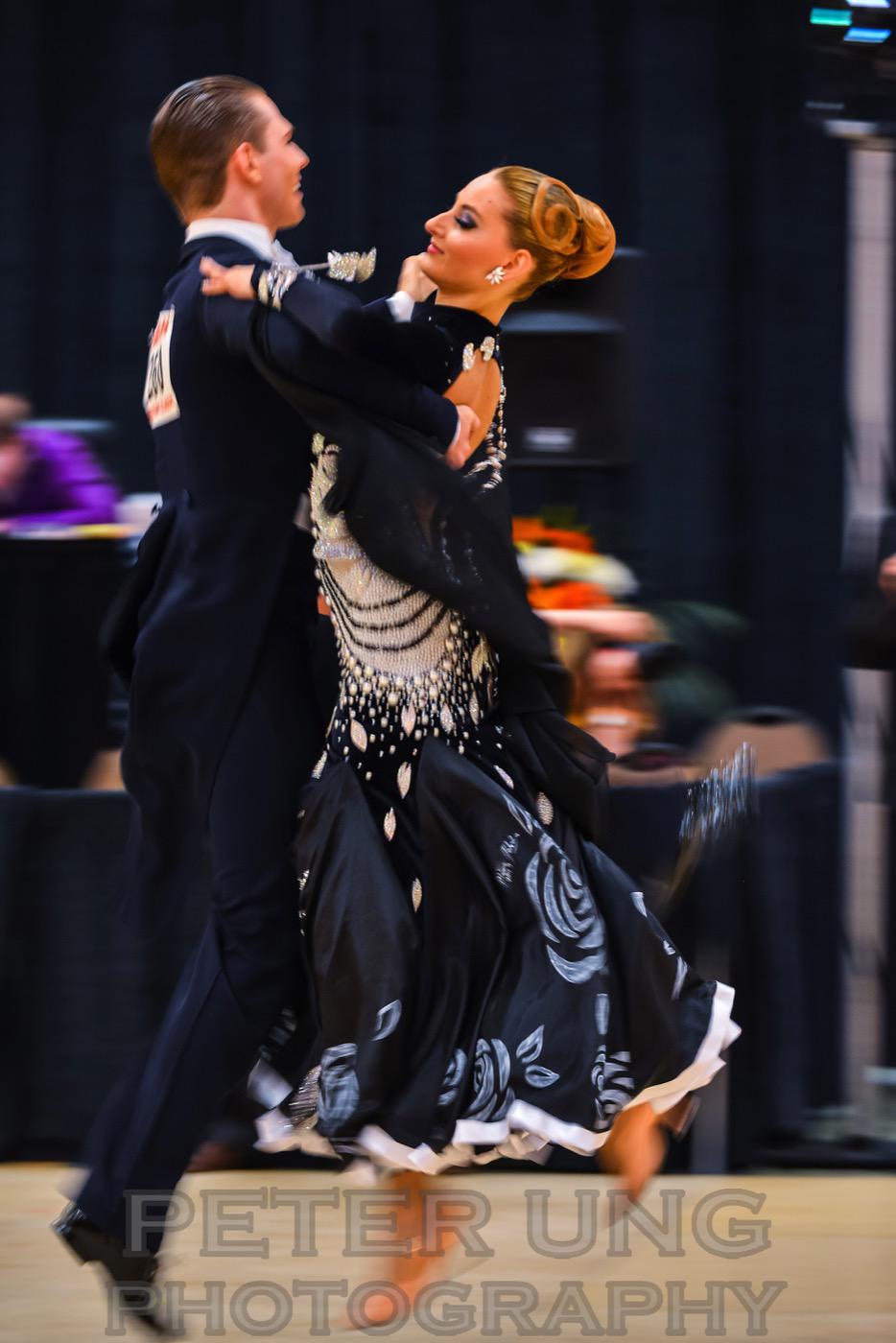Win the Mind Game
By Nicholas Westlake and Neli Petkova

We've all been there. You've been training for months, practicing every day. Your suit is perfectly pressed, your partner's dress is shiny and neat, and her hair and makeup took an irritating number of hours to prepare. You just came from the warmup room where you had a hard time staying focused, and now you're standing in line in the on-deck area with your characteristic perfect posture. Then, unexpectedly, you see something out of the corner of your eye: other dancers on the floor. You start to think, "That's a nice natural turn. Is mine that smooth? Is my top line as level? Can I really make the final with all these well-trained couples on the floor? Can I even make the semifinal? I know I'm not the best dancer in the room, but am I the worst?" Of course, your thought pattern follows the path of least resistance to whatever you are most insecure about in your performance.
Dealing with this mental strain is the mind game you have to dominate in order to excel as a competitor. If you slide deep down into this abyss of cascading insecurity, you've lost the mind game. The good news is that everyone has to learn to win the mind game. Save yourself some heartache and learn from others' mistakes. The following are common ways competitors lose the mind game and some methods that might get your brain back on track when you start to slip.
Pretending There Is No Mind Game
Example: "All the dancers around me look so confident and calm. I must be the only one stressing out about my dancing. If I had booked more practice time before this competition, I'd be calm right now."
Performance is essential practice for performance. Being at that competition is part of your training. There is no substitute for a real, live audience. There is no amount of in-my-safe-practice-space preparation that will remove the need to practice competing. Everyone you are competing with has to play the mind game too, and some days they lose. It's part of their training, too.
Being Surprised
Example: "I didn't know that couple was coming to this competition! And when did those two get so good?"
Expect good competitors at competitions. You want them there. If you were dancing against a pile of gummy bears, a win would be completely hollow.
Expect others to improve. If you're dancing at any open level, almost everyone you compete with has to make a big investment to be at a given competition. People who spend money to compete usually think they have some dancing worth showing in their events.
Self-Hate
Example: "I know my corte is bumpy, and that's all the judges are going see. Plus, I'm bad at getting into frame and I'm screwed if the first impression isn't perfect."
Expect excellence from yourself. This is your only option. If you expect anything less from yourself, you'll get less-than-excellent results. This can be tricky, because feeling confident can feel like a U-turn when you're dabbling in self-hate. Pro tip: start by acting confident and happy. After a few minutes of a compelling act, cognitive dissonance will kick in and you'll start to feel the things you're acting out. Feelings often result from actions. Use this to your advantage.
Revising History
Example: "We've never had a running finish come out right. Plus, I'm always in pain when I dance tango."
This is a sister to self-hate. When you minimize your current skills, it's easy to also magnify the severity and persistence of your past errors. If you have a running finish in your routine, you've probably had one that came out feeling nice and looking okay. That's the one you want to recreate. If you only remember the failed attempts, you're more likely to recreate those.
Mimicry
Example: "Their sway is beautiful. I should copy that style right now."
Trust your training. Maybe it was flawed, but you're not going to sort that out here. If you try to change your technique while you're in a strange venue, in costume, and have no tools to assess if the change is even an upgrade, you're likely to end up altering your look for the worse. Even if you succeed and demonstrate the change you intend to, you'll be putting your focus somewhere other than where you practiced. Focusing on a single technical element of your dancing tends to cause your movement to look fidgety. Conscious control of your body will look stilted and robotic; muscle-memory-based execution is smoother and cleaner.
Giving Up
Example: "I'm always tired by the end, so even if I make the final, I'll dance poorly in it."
This could fall under self hate, but this one is so popular, it deserves its own heading. Expect to dance all the way through the final. If you look like you're wishing you could stop dancing, the judges will grant that wish.
A common thread among all of these solutions is this: know you belong on that competition floor as a dedicated athlete, and act like you've already won. All of your training up to the moment you walk on the floor has prepared you to show that dance, and that dance is part of preparing you for the next. Calm down. Keep your chin up. Keep your head on straight. Win the mind game so your dancing has a chance to win the round.
